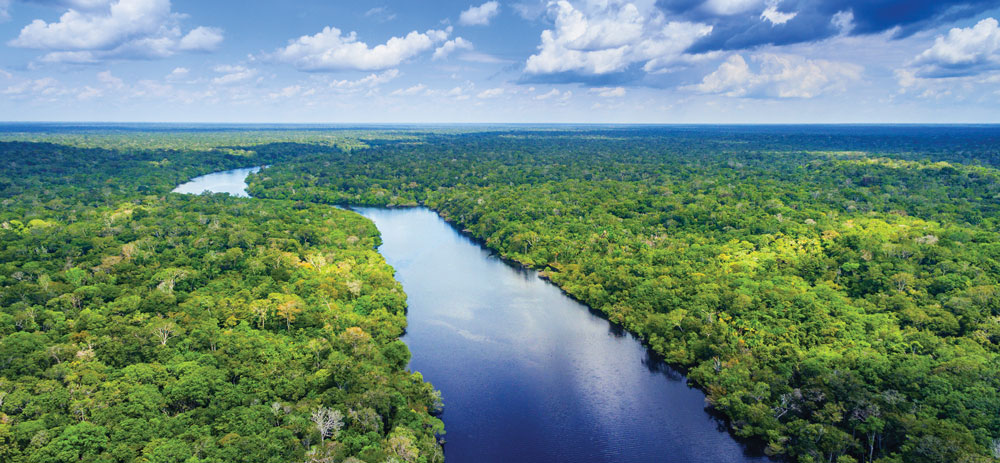



New debate on old issue
February, 2020 in Issue 1 - 2020, Environment
On July 23, 2019, the European Commission (EC) adopted a Communication addressed at the European Parliament, the Council of the EU, the European Economic and Social Committee and the Committee of the Regions on ‘Stepping up EU Action to Protect and Restore the World’s Forests’.
It builds on a number of EU strategies and intends to lay out possible actions to enhance existing policies and take additional action. The Communication follows up on the EU’s 2008 Communication on Deforestation.
The Communication adopts a very broad approach, focusing on five distinct areas of priority and future action:
Importantly, the Communication does not suggest any immediate regulatory action, providing only detailed input for the incoming EC, which can be expected to take further action in the months and years to come.
While the Communication contains several calls for enhanced cooperation and coordination among the EU, third countries, and other actors in industry and civil society, there are also a number of worrying elements that might indicate further discrimination and unilateral action to the detriment of the EU’s trading partners and specific commodities, such as palm oil.
Interestingly, the EC begins by reviewing the EU’s forest cover and its development, noting that the forests had grown from 1990 to 2015 ‘by an area the size of Greece’. Obviously, the EC does not refer to the fact that, historically – prior to logging forests for timber and to make place for agricultural crops – the forest cover in the area of today’s EU had been much more significant. A convenient omission, when calling on other countries to step up their efforts.
The Communication then reviews the drivers of deforestation and identifies the following:
However, the Communication does point out that around 80% of current global deforestation is attributed to the expansion of land used for agriculture. It is then recognised that EU consumption represents around 10% of the global share of deforestation embodied in total final consumption.
The Communication provides an overview of existing EU strategies relating to forests, deforestation and sustainability. Importantly, the EC refers to its efforts of raising consumer awareness with respect to the reduction of the EU’s ‘consumption footprint’, specifically encouraging people to purchase products from deforestation-free supply chains.
The 2008 Communication on Deforestation had put forth the objective to ‘reduce tropical deforestation by 50% by 2020’. Still, the Communication notes that, despite the EU’s ongoing efforts, this objective would likely not be met, leading the EC to conclude that it must ‘step up action and take an even stronger leadership role in protecting and restoring world’s forests’.
Therefore, it can be expected that the EU will continue on its recent regulatory path, which might have additional implications for third countries.

Priority areas and action plans
The Communication details five areas of priority, with corresponding ‘key actions’. These actions are regrouped and further defined in an annex listing the actions to be implemented by the EU, while a second annex lists the recommended actions for EU member-states, industry and civil society.
While the EU’s concerns appear to be sincere, misconceptions and some rather hypocritical elements remain, bringing into question its commitment to fact- and science-based policies.
In fact, part of the Communication appears to be just as ill-informed as the EC’s ‘Report on the status of production expansion of relevant food and feed crops worldwide’. This had accompanied the draft of the EC Delegated Act as regards the determination of high indirect land-use change-risk feedstock – for which a significant expansion of the production area into land with high carbon stock is observed and the certification of low indirect land-use change-risk biofuels, bioliquids and biomass fuels.
The Communication arbitrarily refers to a period from 1990 to 2015, when EU forest cover increased, ignoring the historical events that led to the disappearance of vast forested areas in Europe in the first place.
With respect to the five priorities, a number of issues should be highlighted. As part of the first priority, the Communication refers to the EU’s biofuels policy, notably to the new rules on indirect land use change (ILUC) and the criteria for determining high and low ILUC-risk biofuel feedstock.
In the context of the Delegated Act on ILUC, and the accompanying report, it must be pointed out that the fifth priority focuses on ‘the availability of, quality of, and access to information on forests and commodity supply chains’, clearly implying that the available information and data are not yet adequate and sufficient.
This follows the rather embarrassing statements in the EU’s production expansion report, which often noted that data was ‘not available’ or ‘assumed’. Before important decisions are made, with sometime dire consequences for countries and businesses around the world, the facts should be established with scientific accuracy.

As part of the first priority, which aims at reducing the EU’s consumption footprint on land and encouraging the consumption of products from deforestation-free supply chains, the Communication also refers to the EC’s intention to ‘make it easier for suppliers, manufacturers, retailers, consumers and public authorities, to identify, promote and purchase such products’.
This specifically refers to Regulation (EU) No. 1169/2011 on the provision of food information to consumers, ‘which allows them to distinguish the various vegetable oils contained in products’. This implies that a consumer, by knowing the type of vegetable oil used in a food product, would be able to determine if a product originated from a deforestation-free supply chain, further implying that only certain vegetable oils are to blame for deforestation.
It is not difficult to imagine that this is supposed to refer to palm oil, which has been long denigrated in widespread negative campaigns throughout the EU. Despite the requirement of the EU’s Food Information Regulation, an increasing number of food products is marketed with a label stating that the product is ‘palm oil-free’ – even when the type of vegetable oil used in the product must be indicated on the list of ingredients.
Such claims are misleading and arguably illegal under EU rules. Still, the EU and its member-states have done nothing to halt these campaigns, which generalise against all palm oil; and the reference in the Communication appears to be another endorsement of such deliberate misinformation.
The Communication also discusses the issue of certification and verification, referring to a 2018 study on sustainability standards for palm oil. The Communication notes that guidance should be provided on the credibility of existing sustainability schemes. It calls for standards and certification schemes, which help identify and promote deforestation-free commodities, to be strengthened through, inter alia, ‘studies on their benefits and shortcomings and by developing guidance, including assessment based on certain criteria to demonstrate the credibility and solidity of different standards and schemes’.
However, it is not clear how such studies and guidance documents for the multitude of existing sustainability certification schemes would improve the current situation. Rather, they risk making things even more complex for the consumers. The EC appears to have missed another opportunity to call for the definition instead – in cooperation with the governments of interested countries, particularly the key producing countries – of truly multilateral standards of sustainability.

The second priority refers to working in ‘partnership with producing countries to reduce pressures on forests and to achieve deforest-proof EU development cooperation’, while the third priority refers to international cooperation.
However, in view of recent unilateral EU measures that discriminate against key export products from certain trading partners, such as palm oil, this approach appears as lip service, if not followed by actual undertakings.
Priority Two details the EU’s efforts with respect to the EU Timber Regulation and the EU Forest Law Enforcement, Governance and Trade Action Plan (FLEGT). It is worth noting that Indonesia was the first country to start issuing, on Nov 15, 2016, FLEGT licences for verified legal timber products to be exported to the EU. In the subsequent 12 months, Indonesia issued more than 39,000 licences for shipments exported to all 28 EU member-states, with a total value of more than EUR 1 billion.
If such system works for timber, in terms of enforceability on the ground and recognition by the EU, it is not clear why a similar system could not also work for verifying and certifying sustainable palm oil on the basis of a multilateral standard, to be defined and agreed by the EU and the key palm oil producing countries led by Malaysia and Indonesia.
The Communication is a non-binding information document intended for internal use, but will also surely contribute to public debate. The EC invited the European Parliament and the Council of the EU to endorse it.
On Sept 5, 2019, the European Parliament’s Committee on the Environment, Public Health and Food Safety (ENVI) held an exchange of views with the EC on the Communication; and the ENVI Committee is reportedly planning a hearing on the protection of forests. Reports also indicate that the EC will soon make a legislative proposal.
The focus is on trade and international cooperation while, at the same time, implicitly endorsing discriminatory practices against certain products, such as selected vegetable oils.
It can only be hoped that the incoming political leadership of the EC will focus with sincerity on the elements of cooperation and partnership laid out in the Communication, rather than on continuing the unilateral approach and de facto discrimination against palm oil.
FratiniVergano
European Lawyers